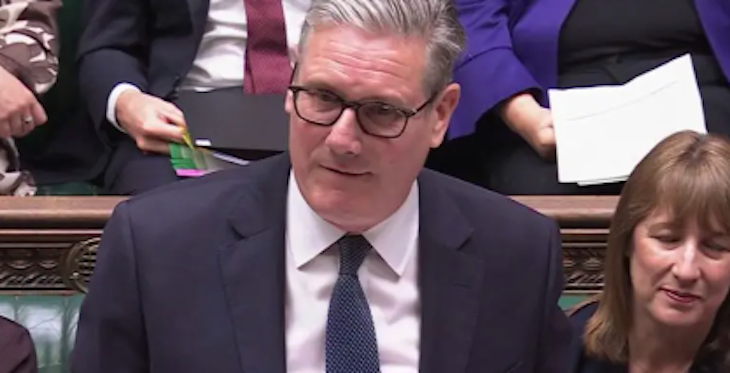In a low-key ceremony in the Catalan parliament on Saturday, Spain’s former health minister Salvador Illa was sworn in as the new president of Catalonia. Despite coming first in the regional elections on 12 May, Illa’s Socialists failed to secure a majority and have spent the last three months in cross-party negotiations. They finally struck a deal with the pro-independence ERC, which came third in the May election after losing 13 of its 33 seats.
Illa is the first unionist politician to become president of Catalonia since 2010, so there has been a lot of talk in Spanish media of a ‘nueva etapa’, or new era – a chance for Catalans to move on from the independence-related upheavals of recent years. Illa, himself a Catalan, has promised that his coalition will be ‘an institution for all Catalans… in [the] service of everyone’. Spain’s Socialist prime minister Pedro Sanchez, under whom Illa served as health minister during the pandemic, has said that Illa is ‘exactly what Catalonia needs’.
High hopes for a new start in this wealthy northeastern region aren’t completely unjustified. Ahead of the May vote, Illa campaigned on a pragmatic platform that concentrated on issues such as education and housing rather than independence. He is a quiet, somewhat dour figure – completely unlike pugilistic former presidents such as Carles Puigdemont and Quim Torra, both of whom governed Catalonia with one goal in mind: to secede from Spain, whatever the cost.
Although pro-independence, the party with which Illa’s Socialists have teamed up is not as hardline as its ally-turned-rival, Puigdemont’s Junts per Catalunya. In fact the dissolution of the ERC-Junts coalition in late 2022 was one of the factors that led to the early election in May. Illa wants to engage with those Catalans who oppose secession from Spain – 53 per cent according to a recent poll, the highest figure in almost a decade – not just the minority (40 per cent) who are in favour.
Still, this is not as emphatic a victory for the unionists as Illa and Sanchez seem to think it is. Separatists have already stated that their support for Catalonia’s new Socialist-led administration is far from unconditional. At the investiture vote last Thursday, Josep Maria Jove, the ERC’s president in the Catalan parliament, warned that there will be ‘consequences’ if the Socialists fail to comply with its conditions – both ‘here and wherever it is needed’. This was an ominous reference to the national congress, where Sanchez’s minority government is also dependent on Catalan separatists.
The fact that Illa’s situation now mirrors that of Sanchez should be cause for concern in the unionist camp, not celebration. After losing last July’s general election to the Conservative Popular party, Sanchez was only able to return to power by striking a confidence-and-supply deal with the ERC and Junts. In return, they requested – and received – an amnesty for all the politicians and activists involved in the illegal secession bid of 2017, several of whom were handed lengthy prison sentences by Spain’s Supreme Court (they were pardoned by Sanchez in 2021). Puigdemont avoided the same fate by fleeing to Belgium, where he remained in self-imposed exile until a brief, dramatic return to Catalonia last week.
Sanchez hoped to appease separatists with the amnesty, which is hugely unpopular amongst Spaniards – but so far it has only emboldened them, as was shown by Puigdemont’s Houdini-like antics in Barcelona last Thursday. As well as being deeply embarrassing for the Spanish government, the former Catalan president’s fist-pumping speech and subsequent evasion of arrest – despite the presence of hundreds of police officers – sent a clear message to both Sanchez and Illa: success in their respective offices will depend on how they handle the separatists. Junts and the ERC will relish playing the two men off against each other, punishing the prime minister for non-compliance by the Catalan president and vice versa.
The ERC has wasted no time in extracting concessions from the Socialists in return for its precious votes.. Even in his reduced acting capacity after May’s election, Pere Aragones, the party’s boss and Illa’s pro-independence predecessor, made awkward demands of Sanchez. He managed to wrest control of the region’s minimum basic income scheme from the central government, and repeated his request for a ‘single financing’ setup, in which Catalonia manages its own taxes.
One wonders how many times throughout his presidency Illa will have to make similar demands of Sanchez to keep the ERC on board – and how many times the prime minister will have to accede to retain the support of Junts. The sight of two powerful unionists negotiating on behalf of separatists would no doubt feel, for the latter group, like the ultimate victory. Yet this is precisely what might happen in the not-so-new era that has just begun in Catalonia.







Comments